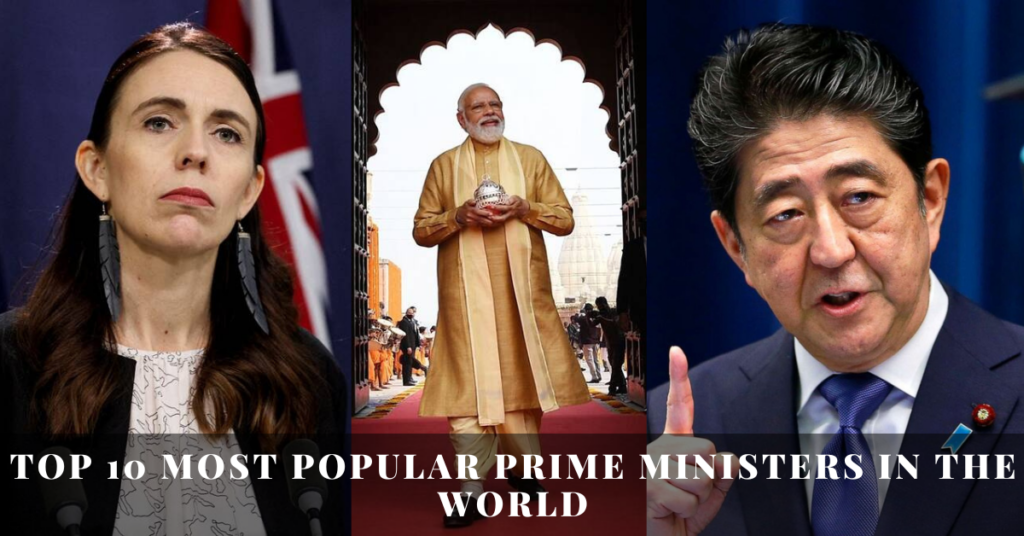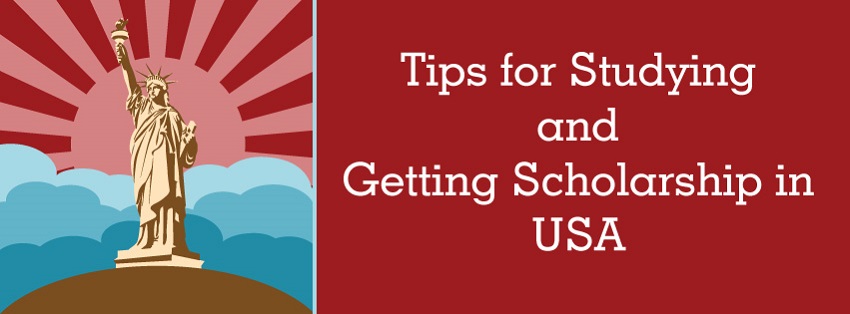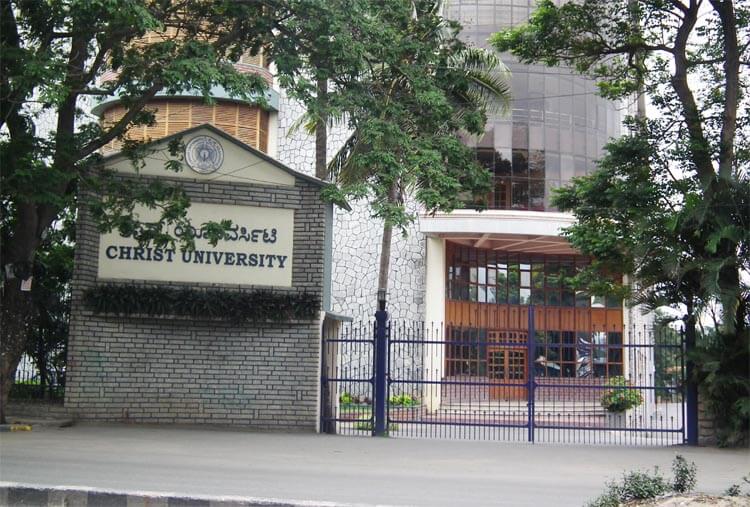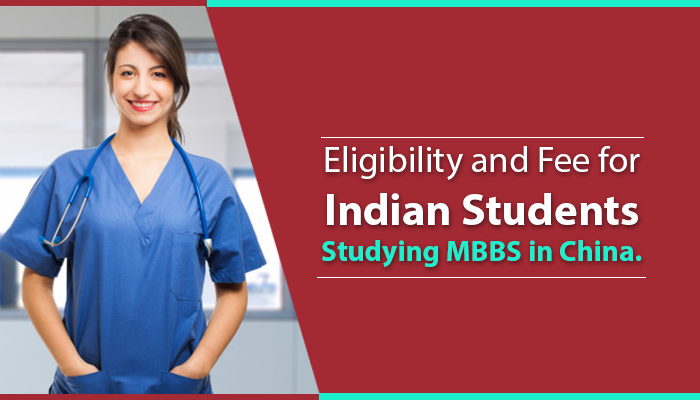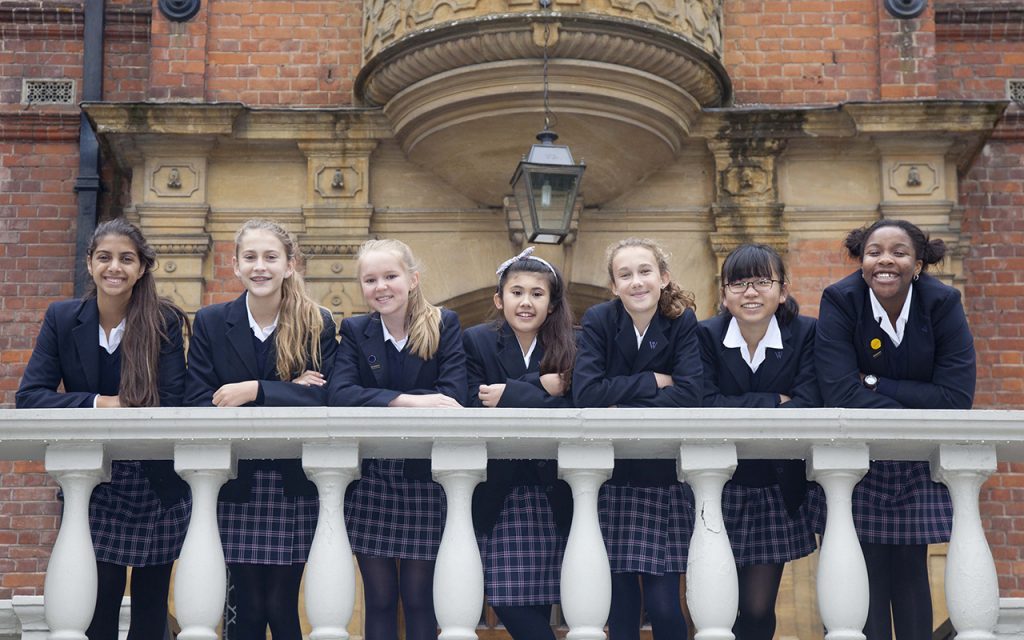It’s difficult to definitively rank the most popular prime ministers in the world, as popularity can be subjective and can vary depending on a range of factors such as domestic politics, foreign policy, and economic conditions. However, based on public approval ratings, media coverage, and international recognition, here are ten prime ministers who have been widely regarded as popular in recent times:
1. Jacinda Ardern – Prime Minister of New Zealand
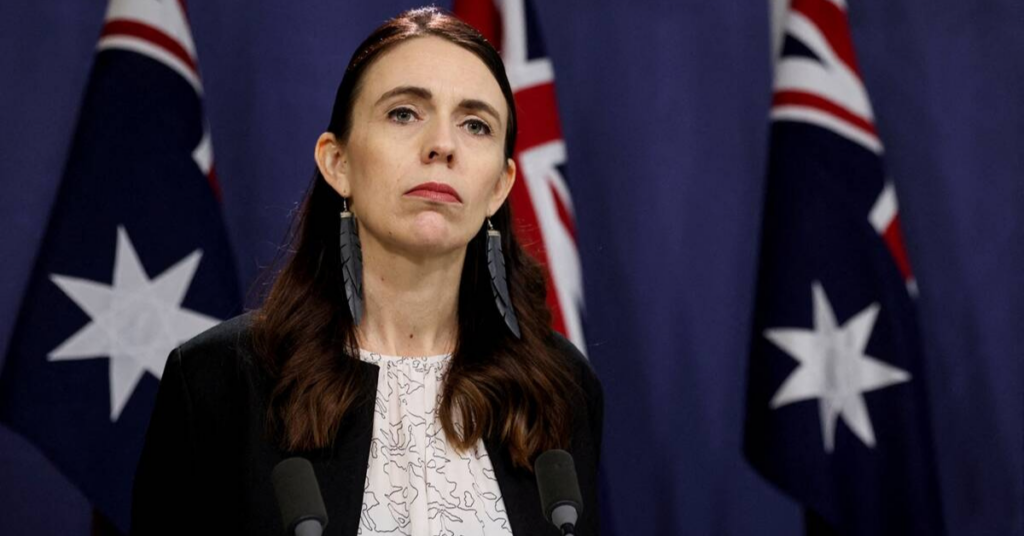
Jacinda Ardern is a New Zealand politician who has been serving as the 40th Prime Minister of New Zealand since 2017. She is the leader of the New Zealand Labour Party and has been a Member of Parliament since 2008.
Ardern was born in Hamilton, New Zealand, in 1980, and grew up in Morrinsville and Murupara. She graduated from the University of Waikato with a Bachelor of Communication Studies in politics and public relations. Before entering politics, Ardern worked in the offices of former Prime Minister Helen Clark and for the New Zealand government in London.
Ardern became the leader of the Labour Party in 2017, just weeks before the general election. She led her party to a surprise victory, and at the age of 37, became the youngest female head of government in the world at the time. Her leadership style, which emphasizes compassion, inclusivity, and social justice, has earned her widespread praise and international recognition.
During her time as Prime Minister, Ardern has implemented several significant policy changes, including increasing the minimum wage, introducing a zero-carbon bill, and launching a major housing and infrastructure program. She has also been praised for her response to the Christchurch mosque shootings in 2019, which included a swift and decisive ban on military-style semi-automatic weapons.
Ardern is married to television presenter Clarke Gayford, and the couple has one child together. She has been widely praised for her commitment to work-life balance and for normalizing motherhood in politics.
2. Justin Trudeau – Prime Minister of Canada
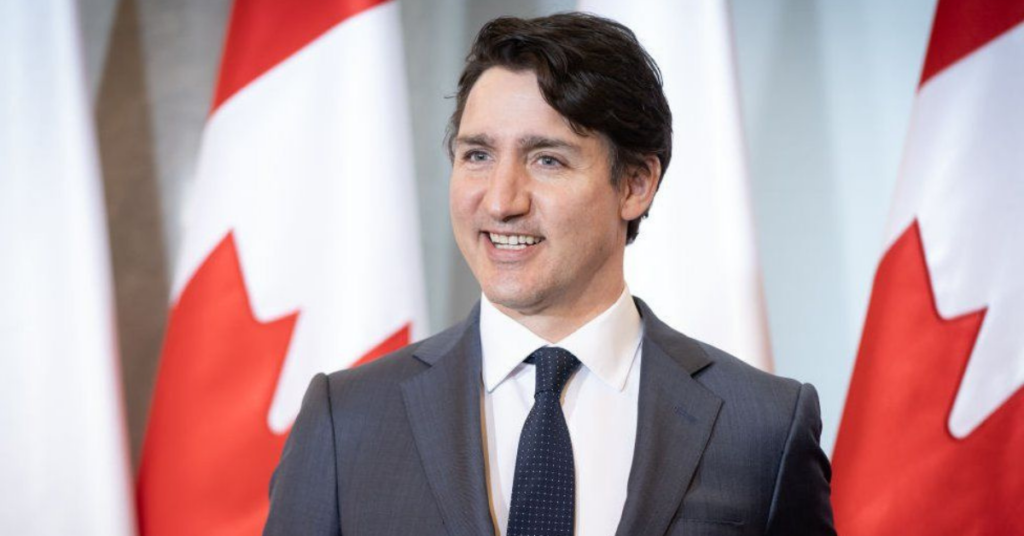
Justin Trudeau is a Canadian politician and the current Prime Minister of Canada. He was born on December 25, 1971, in Ottawa, Canada, and is the eldest son of former Canadian Prime Minister Pierre Trudeau.
Trudeau graduated from McGill University with a degree in literature before working as a teacher and then entering politics. He was first elected to the Canadian House of Commons in 2008 as a member of the Liberal Party of Canada, and in 2013 he was elected as the leader of the party.
In 2015, Trudeau and the Liberal Party won a majority government in the Canadian federal election, and he was sworn in as the 23rd Prime Minister of Canada. During his tenure, Trudeau has focused on issues such as climate change, gender equality, and reconciliation with Indigenous peoples.
Trudeau has also been a vocal supporter of immigration and multiculturalism and has been known for his progressive policies and his efforts to promote diversity and inclusion in Canadian society. However, his government has faced criticism over a number of issues, including its handling of the SNC-Lavalin scandal, the Trans Mountain pipeline expansion, and the COVID-19 pandemic.
3. Narendra Modi – Prime Minister of India
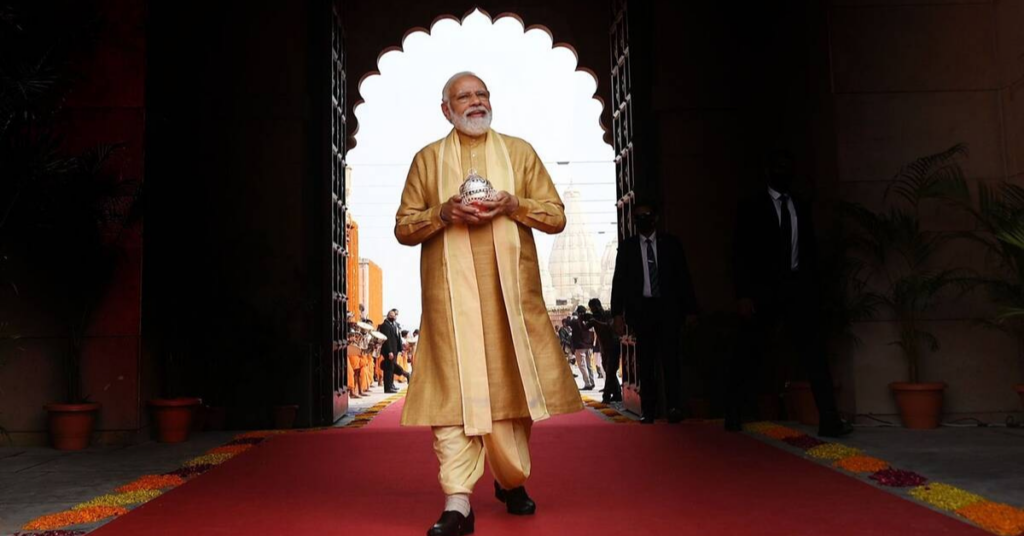
Narendra Modi is an Indian politician who is currently serving as the Prime Minister of India. He was born on September 17, 1950, in Vadnagar, a small town in the state of Gujarat, India.
Modi began his political career as a member of the Rashtriya Swayamsevak Sangh (RSS), a right-wing Hindu nationalist organization, and later joined the Bharatiya Janata Party (BJP). He served as the Chief Minister of Gujarat from 2001 to 2014, before being elected as the Prime Minister of India in 2014.
Modi is known for his ambitious economic policies, including the Make in India initiative, which aims to promote domestic manufacturing and attract foreign investment, and the Digital India campaign, which seeks to expand internet connectivity and use of technology in the country. He has also launched various social welfare schemes, such as the Pradhan Mantri Jan Dhan Yojana, which aims to provide financial inclusion to all households in India.
Modi has faced criticism for his handling of issues such as communal violence and religious intolerance, as well as for his government’s controversial policies such as the Citizenship Amendment Act and the abrogation of Article 370 in Jammu and Kashmir. Despite this, he remains a popular figure in Indian politics and has won several elections with a large majority.
4. Angela Merkel – Former Chancellor of Germany
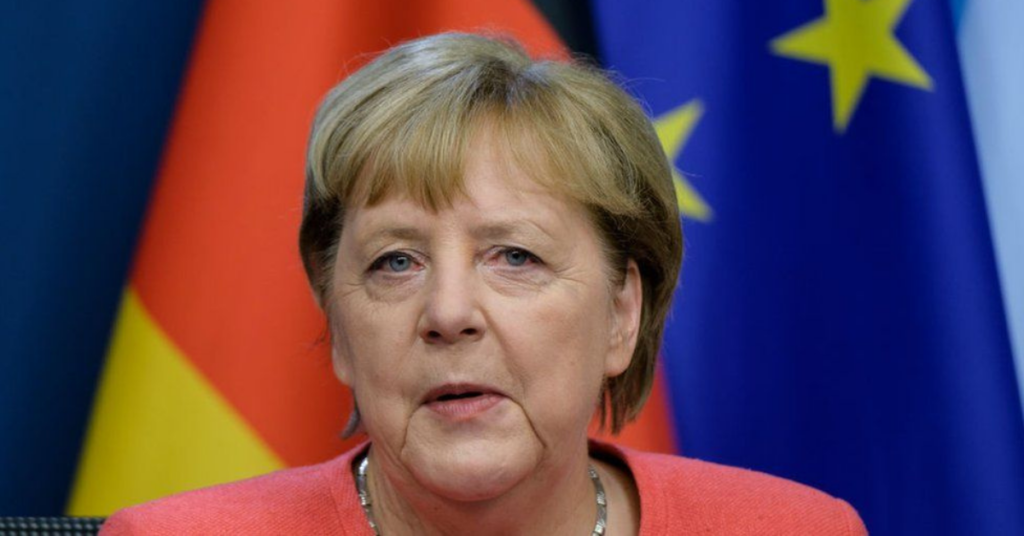
Angela Merkel is a German politician who served as the Chancellor of Germany from 2005 to 2021. She was born on July 17, 1954, in Hamburg, West Germany. Merkel holds a doctorate in physical chemistry and worked as a research scientist before entering politics.
In 1990, Merkel was elected to the Bundestag, the German federal parliament, and was appointed as the Minister for Women and Youth under Chancellor Helmut Kohl. After Kohl lost the election in 1998, Merkel was appointed as the Secretary-General of the Christian Democratic Union (CDU), a position she held until 2000. In 2005, she became the first female chancellor of Germany and was re-elected to the position in 2009, 2013, and 2017.
During her time as chancellor, Merkel played a key role in managing the Eurozone crisis, the refugee crisis, and the COVID-19 pandemic. She was known for her cautious and pragmatic leadership style and was often referred to as the de facto leader of the European Union.
Merkel retired from politics in 2021, and Armin Laschet succeeded her as the leader of the CDU.
5. Shinzo Abe – Former Prime Minister of Japan
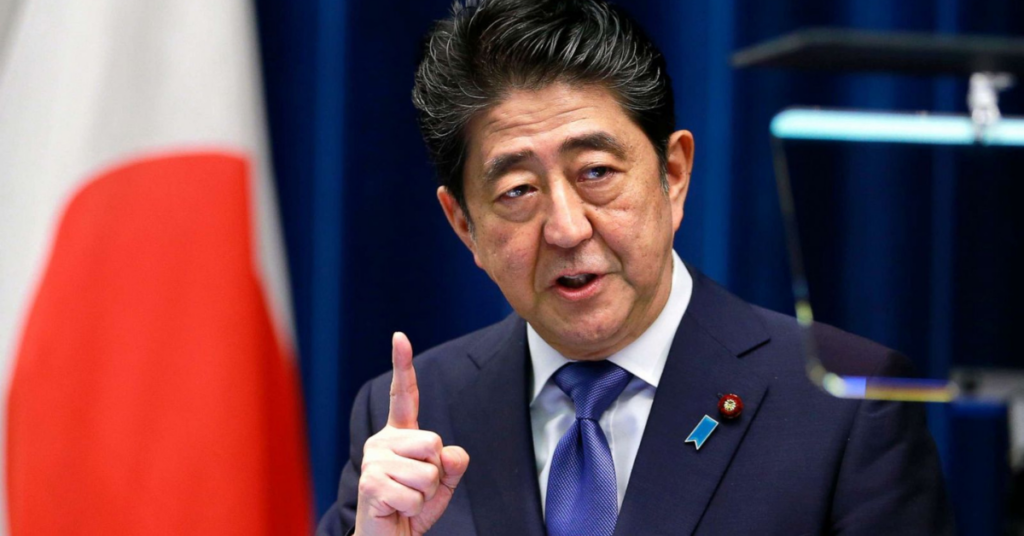
Shinzo Abe is a Japanese politician who served as the Prime Minister of Japan from 2012 to 2020. He was also the President of the Liberal Democratic Party (LDP) of Japan from 2012 to 2020. Abe’s political career began in 1993 when he was first elected to the House of Representatives. He subsequently served in several key government positions, including Chief Cabinet Secretary, Minister for Foreign Affairs, and Minister of Finance.
During his tenure as Prime Minister, Abe implemented a series of economic policies, known as “Abenomics,” which aimed to revive the Japanese economy by implementing a mix of monetary easing, fiscal stimulus, and structural reforms. He also pursued a more assertive foreign policy, strengthening Japan’s security alliance with the United States, and engaging in closer economic and diplomatic ties with other countries in the Asia-Pacific region.
Abe was known for his strong leadership style and his conservative political views. He resigned from his position as Prime Minister in September 2020 due to health issues.
6. Boris Johnson – Prime Minister of the United Kingdom
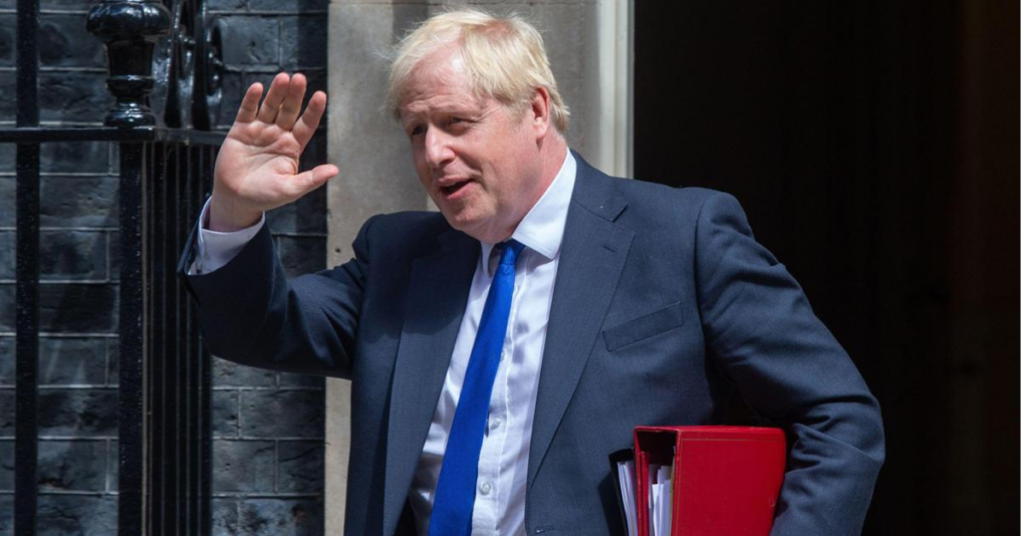
Boris Johnson is a British politician who is currently serving as the Prime Minister of the United Kingdom. He was born on June 19, 1964, in New York City, USA, but was raised in London, England. Johnson is a member of the Conservative Party and was first elected as a Member of Parliament (MP) for the constituency of Henley in 2001. He later served as the Mayor of London from 2008 to 2016.
In July 2019, Boris Johnson was elected as the leader of the Conservative Party, succeeding Theresa May as Prime Minister of the United Kingdom. He has been a polarizing figure in British politics due to his outspoken style and controversial statements, but has also been praised for his leadership during the COVID-19 pandemic and for his efforts to negotiate a post-Brexit trade deal with the European Union.
7. Erna Solberg – Prime Minister of Norway
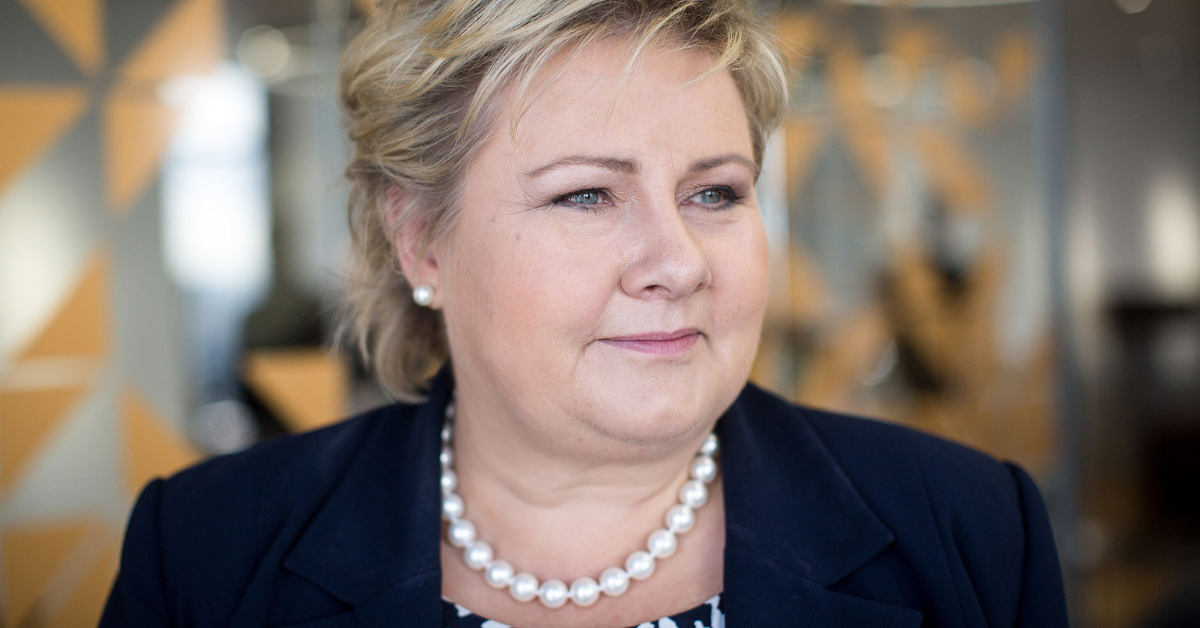
Erna Solberg is a Norwegian politician who served as the Prime Minister of Norway from 2013 to 2021. She was born on February 24, 1961, in Bergen, Norway. She is a member of the Conservative Party and has been active in politics since the 1980s.
Solberg was first elected to the Norwegian Parliament in 1989 and has been a Member of Parliament ever since. She has held several ministerial positions, including Minister of Local Government and Regional Development and Minister of Petroleum and Energy.
During her tenure as Prime Minister, Solberg focused on issues such as education, welfare, climate change, and the economy. She also played a key role in Norway’s response to the COVID-19 pandemic, implementing measures to control the spread of the virus while also supporting the economy.
In September 2021, Solberg was succeeded as Prime Minister by Jonas Gahr Støre following the parliamentary election.
8. Emmanuel Macron – President of France
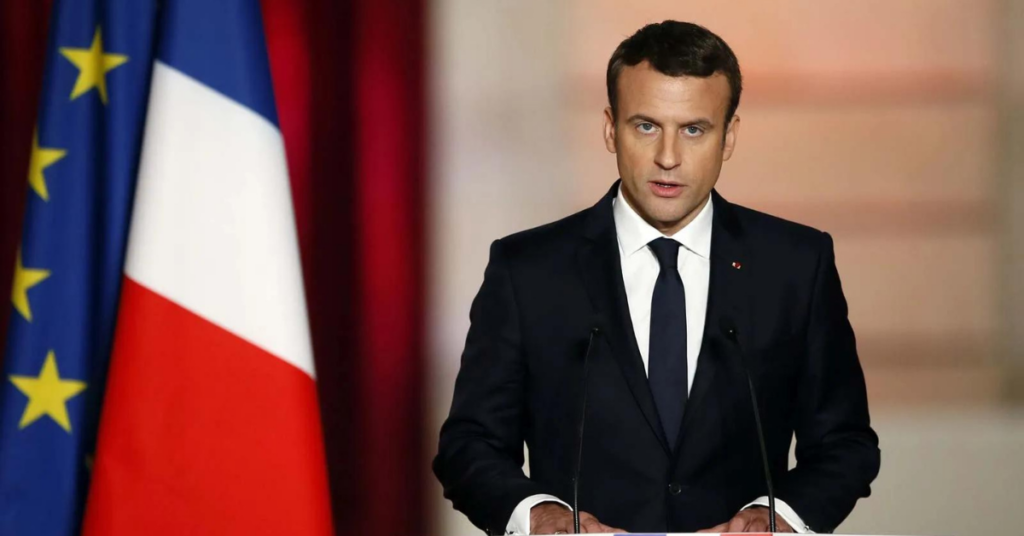
Emmanuel Macron is a French politician who has been serving as the President of France since May 2017. He was born on December 21, 1977, in Amiens, France, and grew up in the city of Amiens and the nearby village of Attignat-Oncin.
Macron attended the prestigious École nationale d’administration (ENA) and began his career as an Inspector of Finances in the French Ministry of Economy. In 2012, he joined President François Hollande’s staff as a Deputy Secretary-General, and in 2014, he was appointed Minister of the Economy, Industry, and Digital Affairs.
In 2016, Macron resigned from the government and founded his political movement, En Marche!, with the goal of creating a “democratic revolution” in France. He ran as the candidate of En Marche! in the 2017 French presidential election, and after winning the first round of voting, he defeated Marine Le Pen in the second round to become the youngest President in French history.
As President, Macron has pursued an ambitious reform agenda aimed at liberalizing the French economy, boosting innovation, and strengthening the European Union. He has also been a vocal advocate for multilateralism and international cooperation, and has taken a leading role in efforts to combat climate change.
Macron’s presidency has been marked by controversy and public protests, particularly over his economic and social reforms, including his efforts to reform the French pension system and labor laws. Despite these challenges, Macron has remained a prominent figure on the international stage and a key player in European politics.
9. Mark Rutte – Prime Minister of the Netherlands
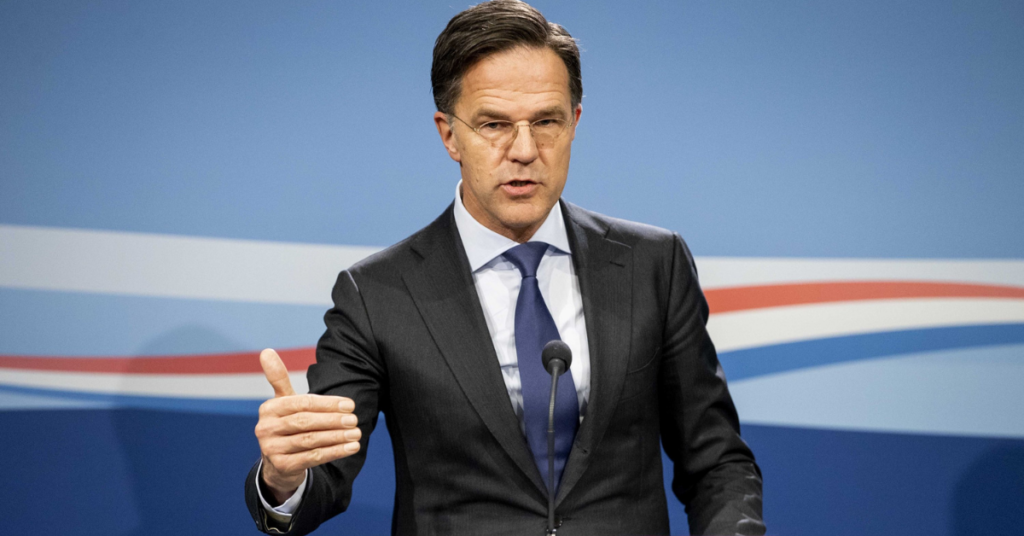
Mark Rutte is a Dutch politician who served as the Prime Minister of the Netherlands from 2010 to 2021. He was born on February 14, 1967, in The Hague, Netherlands. He studied history at Leiden University and then worked for several years at Unilever, a multinational consumer goods company.
Rutte entered politics in the late 1990s and became a member of the People’s Party for Freedom and Democracy (VVD). He was elected to the Dutch House of Representatives in 2003 and became the leader of the VVD in 2006. In 2010, he was appointed Prime Minister of the Netherlands, leading a coalition government.
During his tenure, Rutte oversaw several significant reforms, including changes to the Dutch healthcare system and the retirement age. He also played a leading role in the European Union, advocating for greater economic cooperation and austerity measures during the eurozone crisis.
In 2021, Rutte resigned as Prime Minister after a scandal involving government payments to families that were wrongly accused of child welfare fraud. However, he remains an influential figure in Dutch politics and continues to serve as the leader of the VVD.
10. Scott Morrison – Prime Minister of Australia
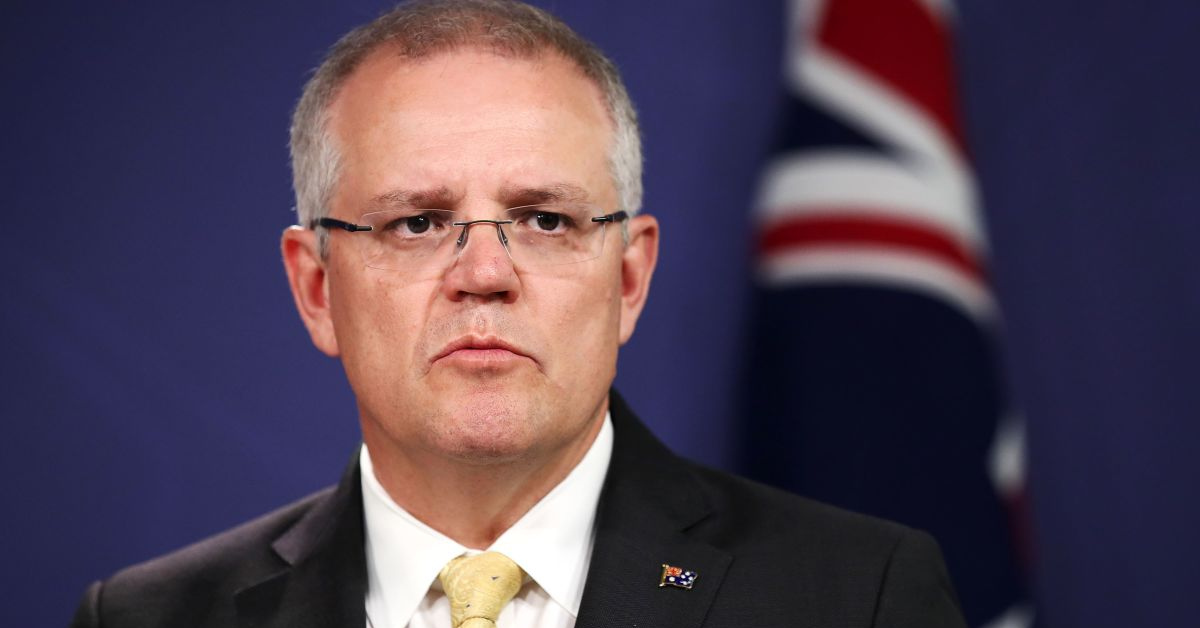
Scott Morrison is an Australian politician who has been serving as the Prime Minister of Australia since August 2018. He is a member of the Liberal Party of Australia and has been a Member of Parliament (MP) for the Division of Cook in New South Wales since 2007.
Prior to becoming Prime Minister, Morrison served in various cabinet positions, including as Treasurer of Australia from 2015 to 2018. He has also worked in the tourism and marketing industries before entering politics.
As Prime Minister, Morrison has focused on issues such as economic growth, national security, and immigration policy. He has also been involved in efforts to address climate change, including setting a target for net-zero greenhouse gas emissions by 2050.
Morrison has faced criticism for his handling of issues such as the bushfire crisis in Australia, the country’s response to the COVID-19 pandemic, and the treatment of refugees and asylum seekers. However, he has also received praise for his government’s economic policies and handling of the country’s vaccine rollout.
It’s worth noting that popularity can be dynamic and can change rapidly depending on various factors, such as political developments, scandals, and global events.

